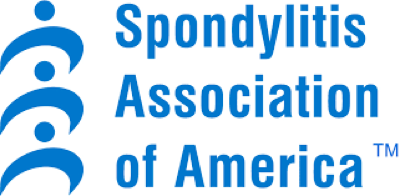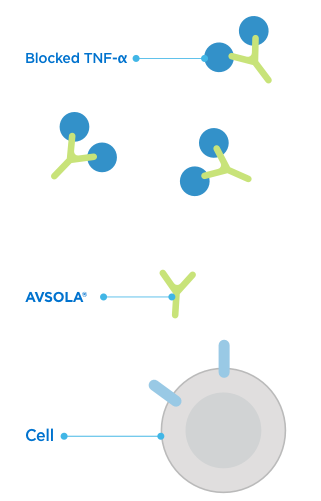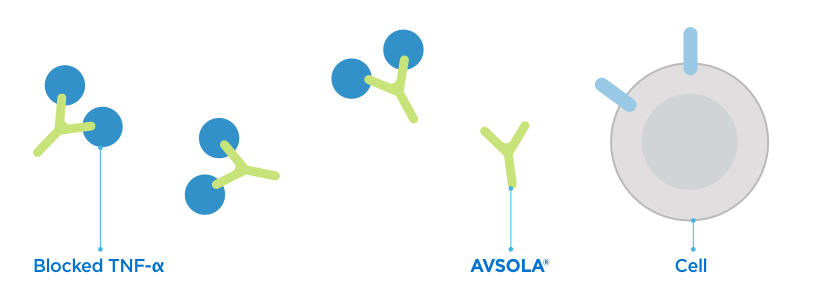INDICATIONS
AVSOLA® is indicated for:
Moderate to Severe Crohn’s Disease: Can reduce signs and symptoms and induce and maintain remission in adult patients with moderately to severely active Crohn’s disease who haven’t responded well to other therapies
Moderate to Severe Pediatric Crohn’s Disease: Can reduce signs and symptoms, and induce and maintain remission, in children (ages 6-17) with moderately to severely active Crohn’s disease who haven’t responded well to other therapies
Moderate to Severe Ulcerative Colitis (UC): Can reduce signs and symptoms, induce and maintain remission, promote intestinal healing, and reduce or stop the need for steroids in adult patients with moderately to severely active UC who haven’t responded well to other therapies
Moderate to Severe Pediatric Ulcerative Colitis: Can reduce signs and symptoms, and induce and maintain remission, in children (ages 6-17) with moderately to severely active ulcerative colitis who haven’t responded well to other therapies
Moderate to Severe Rheumatoid Arthritis (RA): Can reduce signs and symptoms, help stop further joint damage, and improve physical function in adult patients with moderately to severely active RA, in combination with methotrexate
Psoriatic Arthritis (PsA): Can reduce signs and symptoms of active arthritis, help stop further joint damage, and improve physical function in adult patients with PsA
Ankylosing Spondylitis (AS): Can reduce signs and symptoms in adult patients with active AS
Chronic Severe Plaque Psoriasis: Approved for the treatment of adult patients with severe (extensive and/or disabling) plaque psoriasis under the care of a physician who will determine if AVSOLA® is appropriate considering other available therapies
Please see full Prescribing Information.
AVSOLA® is a registered trademark of Amgen, Inc.
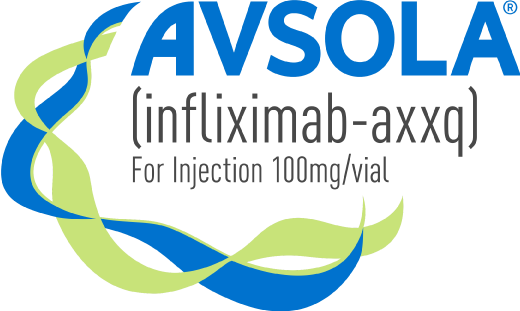
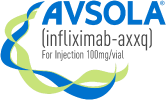
 Are given the same way
Are given the same way 





